Updated July 14, 2011 to include quote from RAN.
Indonesia will “recognize, respect and protect” the rights of traditional forest users, including indigenous people, as it works to slow deforestation, reports the Rights and Resources Initiative, a coalition of NGOs.
Speaking at a forestry conference in Lombok, Kuntoro Mangkusubroto, head of the Indonesian President’s REDD+ Task Force, said the government would immediately work to implement a decade-old law that requires recognition of adat or customary rights. The effort will include developing a land tenure map so government agencies can better understand how communities are using land and delineating the legal status of the Indonesia’s forest area. Only 12 percent of the Indonesia’s forest area has been legally delineated, according to Kuntoro.
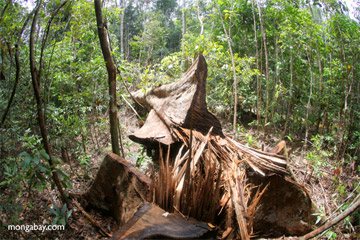 Illegal logging in West Kalimantan’s Gunung Palung National Park. Hardwoods are being trafficked by a timber barons in the town of Ketapang. Photo taken by Rhett Butler in March 2011. |
Land tenure issues have long plagued the forestry sector in Indonesia. The bulk of Indonesia’s forest is owned by the state, which historically has doled out large concessions — often tens of thousands of hectares in extent — to logging companies. Local communities mostly lose out, leaving some to seek opportunities from illicit timber harvesting. Without clear ownership rights to land, communities have little incentive to reject illegal logging or manage forests for the long-term. The model — which has contributed to the abandonment of traditional land stewardship in many areas — has driven large-scale devastation of Indonesia’s rich forest ecosystems.
Kuntoro highlighted this problem in his speech, noting that according to a recent government study, about 20 percent of all villages in Indonesia are located within forest lands claimed by the government as part of its Forest Estate.
“So, it can be argued as illegal because they live on state land,” Kuntoro said. “However, people from the village will claim that they have lived there for generations.
“Because of this, land tenure conflicts happen and can create uncertainty for development purposes.”
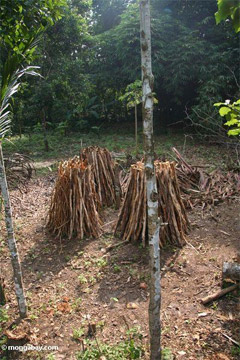 Bundles of wood in Java. |
Kuntoro’s speech came a day after Indonesia said it would more than double the the land currently under community-based forest management by granting 89,000 hectares of forest permits to communities. Even with that expansion, less than 1 percent of Indonesia’s forest land is under community-based forest management.
Nevertheless the move was welcomed by community rights advocates and environmentalists.
“This represents a tipping point in Indonesia’s policies toward the rights of the people who live in and around the nation’s forests,” said Iman Santoso, coordinator of a group of experts that is working to resolve the Indonesia’s forest tenure issues. “Because Pak Kuntoro represents the President, this means that all government agencies will have to align their policies with the directives communicated today.”
“This is a watershed moment for the people and forests of Indonesia as well as the future health of our global climate,” added Lafcadio Cortesi, forest campaigner at the Rainforest Action Network.
Cortesi said a recent visit to a remote village in South Sumatra showed the potential of community-managed forest areas — known as Hutan Desa under Indonesian law — to support sustainable local communities.
“Hutan Desa holds significant promise for improving the livelihoods of Indonesian forest communities while maintaining Indonesia’s priceless ecological, cultural and climate values.”
“Our experience in the field yesterday and working with customers that buy forests products, suggests that certainty around land status and tenure is a crucial element for ensuring Indonesia becomes a go-to supplier for the international marketplace,” he continued. “Hutan Desa and implementation of the legal requirement to identify existing land claims over areas in the national forest estate are two vital elements for creating such certainty.”
“Indonesia will also need to develop and implement new policies and exercise concerted political will in order to meet its economic and carbon emission reduction targets.”
Related articles
Is the Ministry of Forestry undermining Indonesia’s logging moratorium?
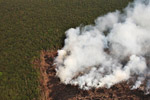
(06/28/2011) Indonesia’s Ministry of Forestry is already undermining the moratorium on new forestry concessions on peatlands and in primary forest areas, alleges a new report from Greenomics-Indonesia. The report, The Toothless Moratorium, claims that a new decree from the Ministry of Forestry converts 81,490 hectares of forest protected under the moratorium into logging areas. The area affected is larger than Singapore.
Indonesia’s moratorium undermines community forestry in favor of industrial interests
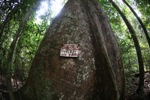
(06/21/2011) Indonesia’s moratorium on new concessions in primary forest areas and peatlands “completely ignores” the existence of community forestry management licenses, jeopardizing efforts to improve the sustainability of Indonesia’s forest sector and ensure benefits from forest use reach local people, say environmentalists. According to Greenomics-Indonesia, a Jakarta-based NGO, community and village forestry licenses are not among the many exemptions spelled under the presidential instruction that defines the moratorium. The instruction, issued last month, grants exemptions for industrial developers and allows business-as-usual in secondary forest areas by the pulp and paper, mining and palm oil industries.
(06/17/2011) World Resource Institute’s summary of key elements, and unanswered questions, in Indonesia’s recent moratorium on new forest permits.
Fighting illegal logging in Indonesia by giving communities a stake in forest management
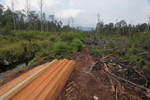
(03/10/2011) Over the past twenty years Indonesia lost more than 24 million hectares of forest, an area larger than the U.K. Much of the deforestation was driven by logging for overseas markets. According to the World Bank, a substantial proportion of this logging was illegal. Curtailing illegal logging may seem relatively simple, but at the root of the problem of illegal logging is something bigger: Indonesia’s land policy. Can the tide be turned? There are signs it can. Indonesia is beginning to see a shift back toward traditional models of forest management in some areas. Where it is happening, forests are recovering. Telapak understands the issue well. It is pushing community logging as the ‘new’ forest management regime in Indonesia. Telapak sees community forest management as a way to combat illegal logging while creating sustainable livelihoods.